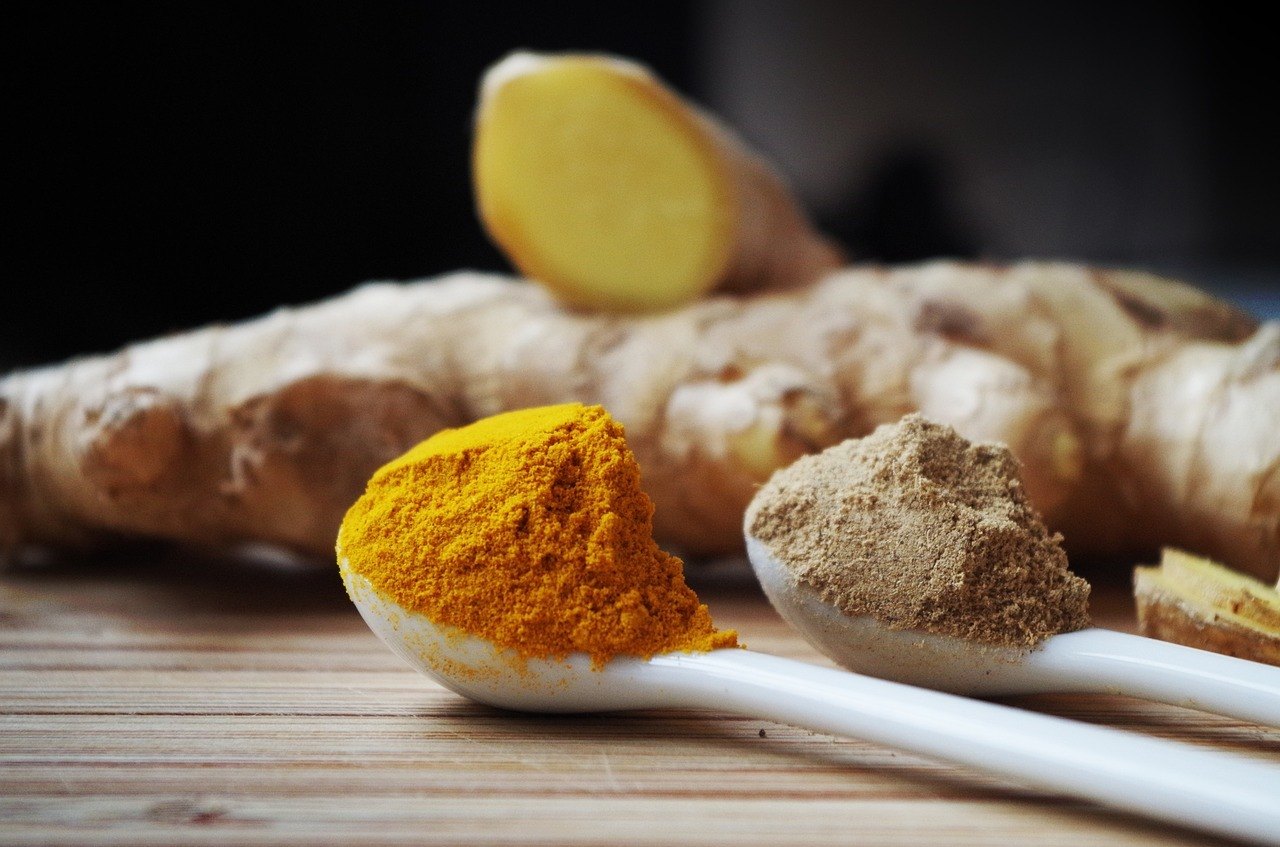
Turmeric, Curcuma longa or “Indian saffron” has been a part of the healthy dieting trend for quite some time, and it isn’t without a good reason. Traditionally Asian, the plant belongs to the ginger family and it gives curry its yellowish color and warm, bitter taste.
With an amazing array of health benefits it offers, it is no wonder that it has been quickly adopted by the health conscious eaters around the world.Originating in Southern Asia, traditionally, turmeric root (usually dried and cooked and turned into powder) has been used as a spice for dishes in the traditional cuisine, fabric or food coloring aid, and for medical purposes due to its anti-inflammatory effect and great aid in curing bruises, blood in the urine and toothache. With numerous clinical trials testing its active compound curcumin, turmeric has now been proven to improve brain health, cardiovascular health and tissue health. 12
Turmeric main nutrients
Serving Size: 1 tbsp (7 grams)
- Calories 24
- Calories from Fat 6
- Total Fat 1 g 1%
- Saturated Fat 0 g 1%
- Trans Fat
- Cholesterol 0 mg 0%
- Sodium 3 mg 0%
- Total Carbohydrates 4 g 4%
- Dietary Fiber 1 g 6%
- Vitamin C 3%
With no sugar, 16% of iron and 1g of protein per 7 grams, turmeric is a beneficial aid in daily nutrition.
Health benefits of turmeric
Turmeric improves digestion
Turmeric has positive effect on the digestion. As the 2015 research shows 3, turmeric and ginger help in curing stomach ulcer. Stomach ulcer develops as a result of an imbalance between digestive fluids in the stomach and duodenum and a Helicobacter pylori bacteria that cause pain in the stomach lining.
According to the research turmeric “inhibited ulcer by 84.7%” adding that “ethanol-induced lesions such as necrosis, erosion and hemorrhage of the stomach wall were significantly reduced after oral administration of essential oils”.Turmeric aids in depression treatment
A study 4 published in the Journal of Affective Disorders shows that turmeric has the potential for treating major depressive disorder. A randomized, placebo-controlled study found a significant antidepressant effect of turmeric on people with major depressive disorder. A 2007 study 5 also found that turmeric could be an effective anti-depressant agent.
Turmeric treats rheumatoid arthritis
In a 2012 randomized, pilot study 6 the effects of turmeric on rheumatoid arthritis were tested and they showed surprisingly great results. Turmeric actually showed better results of improvement of the condition than the traditionally used drug diclofenac sodium.
Turmeric regulates lipid levels
A 1992 study 7 shows that active compound of turmeric, curcumin, taken daily, can help regulate the lipid levels in humans by increasing “good” cholesterol and decreasing “bad” cholesterol. Namely, “a…
The post Do You Know This Powerful Yellow Powder Is What You Need In Your Healthy Diet. appeared first on FeedBox.